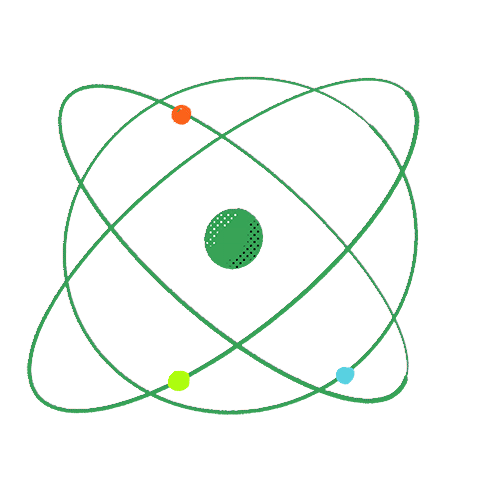
Archimedes screw
Just give us a minute, or two, to finish Are you ready for a higher level? With the aid of a screw, it’s easy to transfer water up to a higher level. All you need to do is turn the screw!this page please!

Explore the experiments in the park, lots of fun water experiments and a great variety of tiny and large, slow and fast experiments. Don't forget to bring some extra clothes – this might get wet! The park is open May-September.
Here, you will also find our tummy-tickling attractions, such as The Centrifuge and the Robocoaster, or why not try the Bike on a tight rope. Fasten up and let's go!




Just give us a minute, or two, to finish Are you ready for a higher level? With the aid of a screw, it’s easy to transfer water up to a higher level. All you need to do is turn the screw!this page please!



Try out this circus act in complete safety! Do you dare to cycle the complete length of the rope?


The experiment shows how people once used to make fire. But how can a magnifying glass and the sun cause the wood to burn?


Come inside and visit a camera. The hole in the wall acts as a lens and lets in the light. You can see on the opposite side of the camera how the image is formed, upside down.


Crawl through one of the large pipes used in drainage systems. This one is 35 m long, and it’s not used to transport water. Are you up to it?


The drop down is temporarily closed for maintenance.
Do you want to experience zero gravity?


Do you want to feel what it’s like in an earthquake? Stand on the simulator and choose your earthquake.


Are there different types of forest? These trees make up what is known as "energy forest", which is the term used to denote a forest grown specifically for purposes of energy. How do you think we get energy from the trees when they are grown?


Walk around on the plate and the fountain sprays water in the same pattern. Pressure-sensitive sensors under the plate open valves that direct the water in the fountain.


A geyser is a source that ejects hot water from the interior of the Earth. Our geyser is activated when you walk round it pushing the stick.


An iron pipe in the ground enables us to investigate the ground water. This pipe has been driven down to a depth of 12 meters.



Life is a maze. You have to get lost a few times before finding your way. Wander round our maze and make some wrong choices, before getting it right and escaping.


Up close, you only see individual small mosaic tiles in different colors. It is easier to see what they depict if you squint, or back away a certain distance.


This experiment demonstrates music, programming, engineering and physics. Can you see all of these elements in the experiment, or are you happy just pumping water and making music?


Pan for gold in the same way as out in nature. You're welcome to keep the gold that you find!


Some animals have extremely good hearing and can hear a whisper from far away. You can also do this, if you use the right equipment!


The large tube filled with water has three holes. The pressure in the tube changes with height. The pressure is greatest at the bottom of the tube. How does the pressure affect the jets of water emitted?


You can see your surroundings in new colours with this experiment. Look through the prism. What colours does the world take on, and how is this possible?


Place your hands on two different stones. Do they feel different? A white object reflects heat while a black one absorbs it.


In our industrial robot Robocoaster, the gripper has been replaced by seats for two people. It gives you a ride 11 metres above the ground!


The Sounding Stones act as a xylophone. Use the hammer to hit one of the stones and listen.


When you pump water to the bucket, the result may not be what you expected. There are holes in the bucket. But these are pointing in different directions and this makes the bucket spin.


How can this stone ball of spectrolite granite be so easy to spin, even though it is so heavy? The ball has a diameter of 60 cm and weighs 360 kg.


The Centrifuge rotates at over 30 km/h. This causes a centrifugal force so great that you don’t need a floor to stand on – the force presses you against the wall.


Art and science meet at Tom Tits, creating new solutions. This moving sculpture shows the way in which a drop falls onto a water surface.


A motion detector next to these lions’ heads switches on the water when somebody passes. Rather than you feeding the animals, they feed you with water!


In this experiment, a rainbow appears when the light from the sun is scattered by the water drops. If you are above the water drops, on a hill, for example, the rainbow you see is round.


This is an experiment that requires collaboration. Can you find the equilibrium point of the plank or is it just fun to see-saw?


Stand in front of the fan and press the buttons. Choose the wind speed you want to fight against. Here, you can safely live through a hurricane.


Create music in our tubes! Hit the tubes and listen to the vibrations propagating through them. The length of a tube affects the pitch of the note it produces.


How high can you fire the rocket? Try it and see! Pump as hard as you can to achieve a really high speed.


The water streams here are emitted as small "pieces" that all land on the same place. They look like small sausages of water.


Water streams can be produced by twisting the water-filled glass plate quickly or slowly in various directions. The plate can be turned in all directions.


Potential energy is stored in the tower in the position of the water. Eight nozzles have been placed at various heights below the water level in the tower. What happens when the water flows out?


This gives you a feel for the Wild West. The windvane is a variant on the ones seen in countless western films. It is a wind-operated pump that brings water from the well when it’s windy.


Our Wind tree is the first of its kind in the Nordic countries! A wind tree works just like a wind turbine but looks like a tree.


This large yoyo shows that a flywheel can store kinetic energy. Start the wheel rotating as if giving a push to a swing, and it can lift you as high as 4 meters above the ground!




